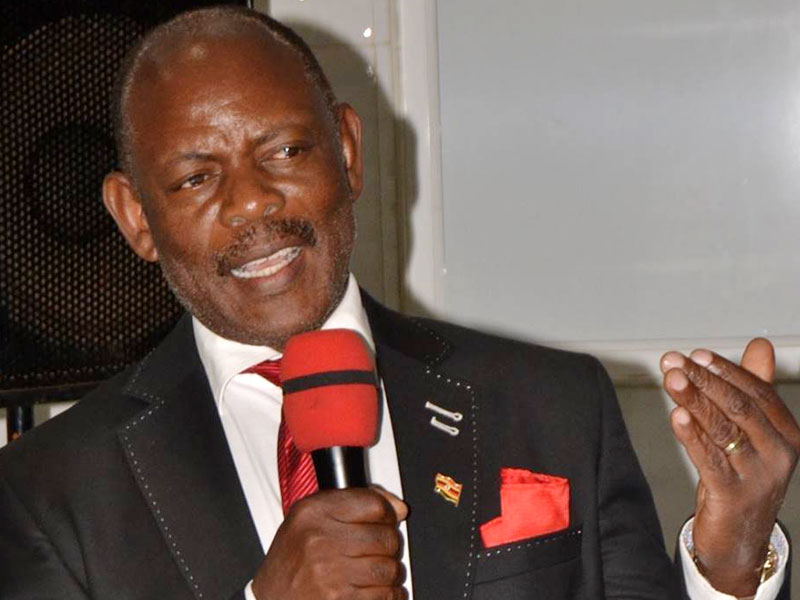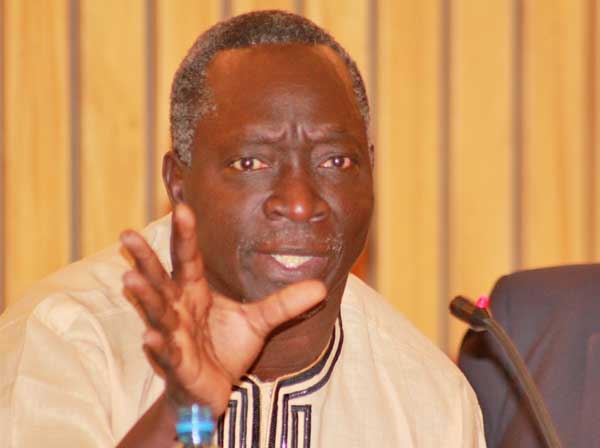Makerere University is among select African universities that are set to benefit from a new 4.2 million Euros (US$5 million) programme that will train postgraduate students in 11 countries in crop improvement, aquaculture, fisheries and fragile ecosystems management.

Funded by the European Commission under the Intra-Africa Academic Mobility Scheme and implemented by the Regional Universities Forum for Capacity Building in Agriculture, or (RUFORUM), the programme is expected at the end of its five-year duration to have produced 71 masters and 35 PhD professionals in the selected areas, with at least 50% being women. It is also designed to facilitate the movement of 20 academic and administrative staff from 17 countries.
Adipala Ekwamu, the RUFORUMExecutive Secretary , said recently that the project’s aim is to increase food, nutritional security and household revenue, while sustainably managing the agricultural ecosystems through relevant research and skilled human resources in the areas of crop improvement, fisheries and aquaculture.
Each of the beneficiary students is expected to produce an innovation or technology that will address at least one challenge facing the agricultural sector. These technologies will be jointly developed with farmers and industry.
Ekwamu says Africa is second to Asia in having largest number of fish farmers but contributes only 7% of the total world fish harvest. However, fish is the highest animal protein source in Africa, reaching up to 50% in some West African countries.
Despite the importance of fish, there are challenges facing the sector. These include the depletion of fish stocks from natural lakes, poor management practices in aquaculture, lack of knowledge and evidence to foster reforms and the untapped potential of small-scale fisheries. In addition, there is a lack of scientific research, climate change, and inadequate human and financial resources.
“Addressing these challenges requires skilled human resources to plan strategically for the sector and develop technologies and innovations that will transform the sector through research. Cooperation and learning among the institutions is key to sharing expertise and research infrastructure as they build each other’s capacity in training and research in aquaculture and fisheries,” said Ekwamu.
Harmonisation
Sylvia Mkandawire, the manager of training and quality assurance at RUFORUM, says that because students will be undertaking short credit mobilities, a harmonised credit accumulation and transfer mechanism will be developed which can be used at a continental level and also be a mechanism for recognition of foreign degrees. The participating universities will have internationalised their programmes in the thematic areas identified with increased relevance of their programmes to local needs, she said.
Mkandawire said crops constitute the largest component of African agriculture and improving crop production meant improving human diet, food and nutrition security.
“Africa’s population is continuously increasing and expected to reach 1.3 billion people by 2050, which is double the current population. Food production will therefore need to more than double, given that a significant part of the continent still starves,” said Mkandawire.
She called on universities to conduct crop breeding research that develops varieties that are adaptable to environmental change and can cope with increased pest and disease infestation, decreasing land availability, as well as declining soil fertility and fragile ecosystems.
Degraded ecosystems
“Professionals with skills to restore and manage degraded ecosystems need to be developed. Universities, being a concentration of human resources and diverse disciplines, should establish research facilities and champion research in ecosystems restoration and management. This project also provides avenues for sharing scientific expertise and research facilities for conducting research in ecosystems management,” she says.
Participating universities
Universities participating in the collaborative training in fisheries and aquaculture in East, Central and Southern Africa include Makerere University, the University of Eldoret, Rhodes University, Mzuzu University, Official University of Bukavu and the University of Natural Resources and Life Sciences, Vienna.
Universities participating in the regional academic exchange for enhanced skills in fragile ecosytems management in Africa programme include Makerere University, the Cheikh Anta Diop University in Dakar, National University of Benin, Uganda Martyrs University, Mzuzu University, Eduardo Mondlane University in Mozambique and the Swedish University of Agricultural Sciences.
Universities participating in the partnership to train scientists in crop improvement for food security in Africaare; Makerere University, University of Ghana, Cairo University, Cheikh Anta Diop University in Dakar, University of Eldoret and the Silesian University of Technology in Poland.






